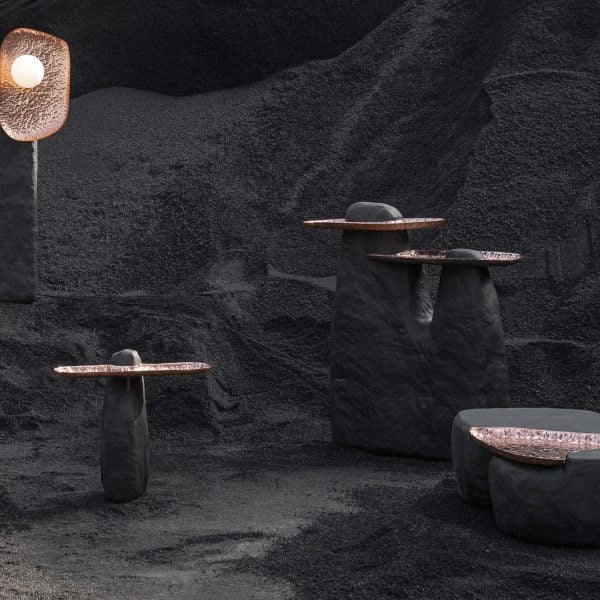On the eve of Dutch Design Week, 10 former recipients of the Dutch Design Awards have nominated 10 rising stars making waves across the Netherlands.
This year, the Dutch Design Awards (DDA) – an annual competition that celebrates the best of recent Dutch design – asked 10 former recipients of the awards to nominate an emerging designer practicing in the Netherlands who they believe is making impactful work across various design disciplines.
All of the spotlighted designers are exhibiting at Dutch Design Week’s Microlab Hall. As the annual event that kicks off in Eindhoven tomorrow. Read on for the list of practitioners:
Yuta Ikeya
Picked by Christien Meindertsma, Utrecht-based designer and engineer Yuta Ukeya uses technology as a tool to better understand the relationship between humans and non-human species – in particular, insects.
Central to Ukeya’s practice is uncovering how existing technology can enhance co-creation and resource-sharing with nature.
Negotiating With The Garden is an ongoing speculative research project by the designer, which he debuted at last year’s Dutch Design Week. Described as “making pottery with bees”, the project proposes sharing mud with red mason bees to create a pollinator-friendly garden by attaching sensors to a beehive.
“Yuta’s work is layered, inspiring, and wonderfully refined,” said Meindertsma.
Find out more about Yuta Ikeya ›
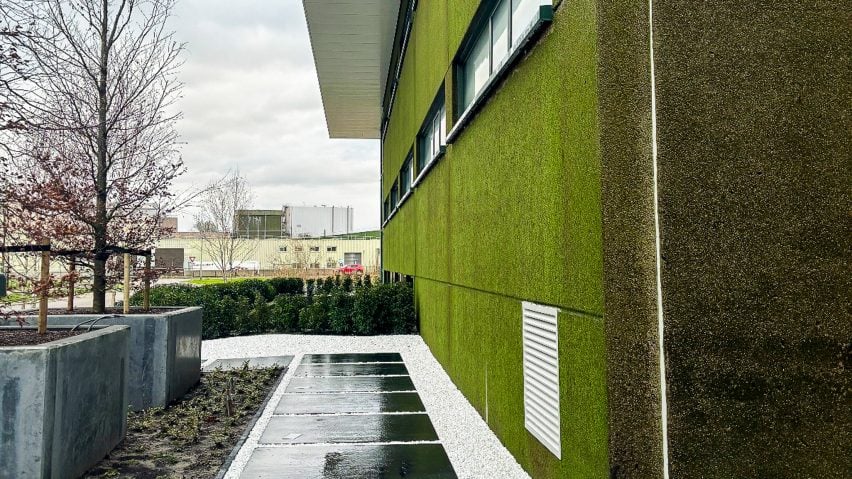
Auke Bleij
Auke Bleij is a designer whose practice centers on urban greening. He is the co-founder of Leiden-based Respyre, a highly porous biosensitive concrete that encourages spontaneous moss growth in cities.
Used as green cladding, the concrete contains a “specialized moss gel”, which allows moss spores to attach to the surface of the concrete. Bleij explained that an abundance of urban moss improves air quality and regulates building temperatures.
“Just as insects lay their eggs in moss, I place my trust in Auke,” said bio designer Bob Hendrikx, who nominated Bleij. “His natural innovation promises a successful path to a greener world.”
Find out more about Auke Bleij ›
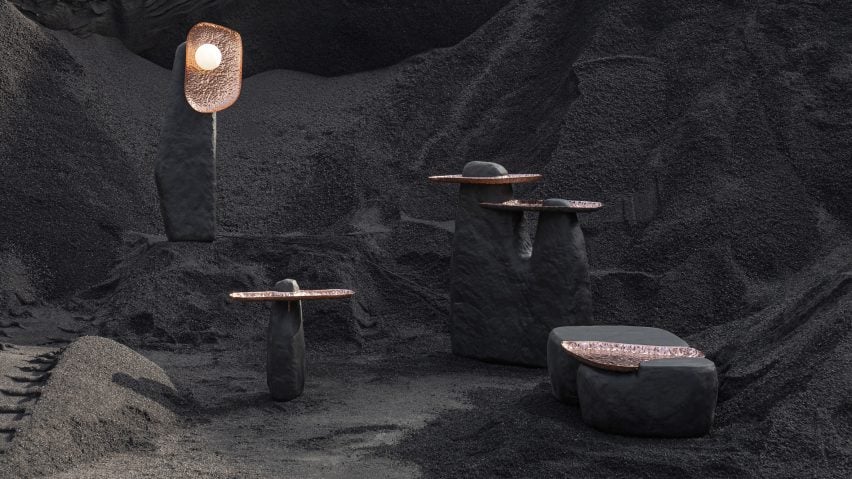
Studio ThusThat
Nominated by designer Tom Van Soest, London- and Amsterdam-based StudioThusThat is led by Kevin Rouff and Paco Boeckelmann.
The studio works with discarded materials, including furniture and homeware pieces cut from a single sheet of aluminum “crust” – an offcut of the smelting process.
Among their projects is This is Copper, an ongoing series of monolithic forms made from a geopolymer developed from slag, which is a byproduct of copper refining. The material is a high-performance cement alternative.
“Studio ThusThat explores the potential of waste, thus showing its beauty in a highly desirable way,” said Van Soest. “This is the key – working with waste rather than with scarce resources.”
Find out more about Studio ThusThat ›
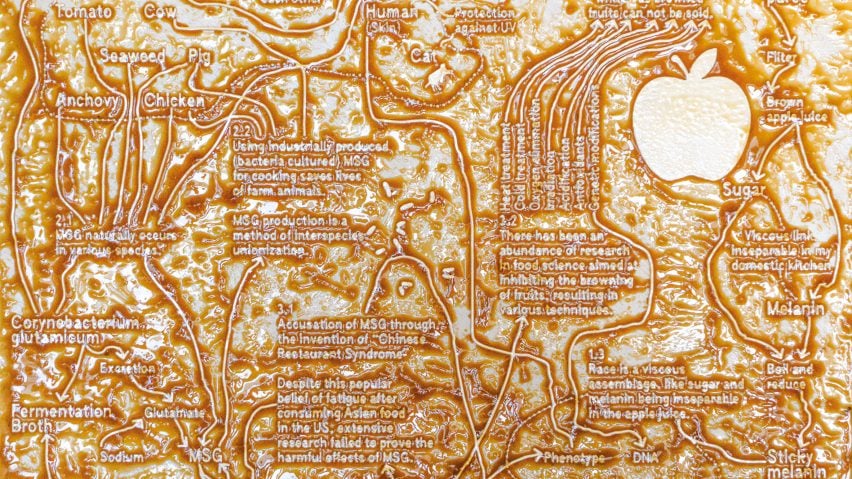
Noam Youngrak Son
Design studio Cream on Chrome spotlighted communication designer Noam Youngrak Son, who previously studied at Maastricht’s Jan van Eyck Academie. Their work encompasses queer publishing and speculative worldbuilding.
Noam’s projects include Towards The Posthuman Idea Of Race As A Viscous Assemblage – a diagram exploring “how the idea of race can be meaningfully extended into a more-than-human status,” said the designer.
The project investigates how race intersects with DNA, artefacts, law, science, wealth distribution and resources, they explained.
“Noam has an outspoken activist practice that challenges notions of gender and interspecies relationships. All of their work is inherently political,” said Cream on Chrome.
Find out more about Noam Youngrak Son ›
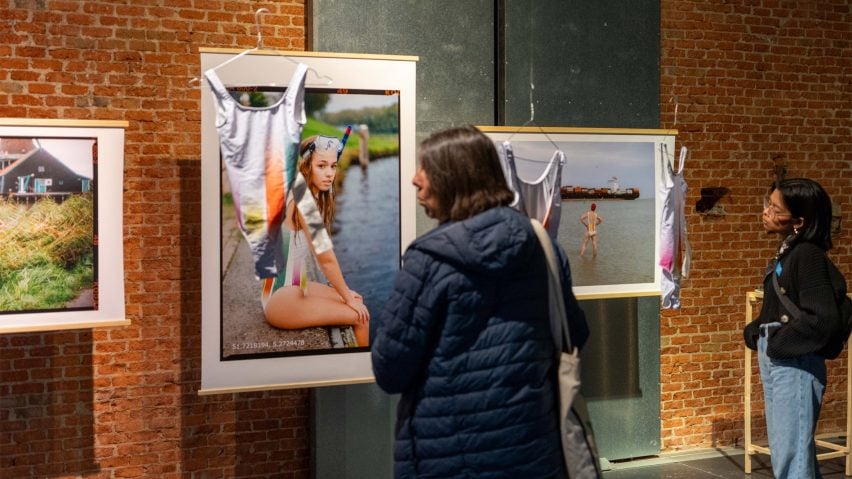
Fides Lapidaire
Dutch designer Fides Lapidaire uses humour to offer “unexpected angles on complex social issues”.
Among her portfolio is the project Bodies of Water. The designer created an interactive swimsuit that indicates the quality of the water it is submerged in through its changing graphic patterns.
In 2022, Lapidaire took her Shit Show or “Broodje Poep” project to Dutch Design Week. Centred on harnessing the benefits of human waste as compost, the exhibition was designed to encourage people to overcome their fears of human poo and recognize its potential value in the food chain.
“Health and wellbeing start with a healthy planet and infrastructure, areas on which Fides provides powerful perspectives that consider the whole system,” said designer Frank Kolkman, who nominated Lapidaire.
“With determination, humour, and a strong visual language, she provides new perspectives on challenging issues and shakes up existing paradigms and beliefs, opening your eyes,” he added.
Find out more about Fides Lapidaire ›
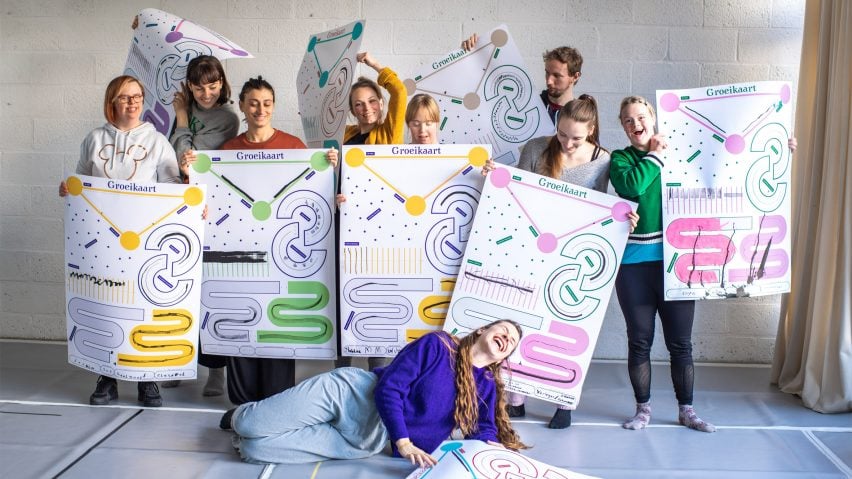
ST-DUO
Spotlighted by designer and creative director Gabriel Fontana, ST-DUO is led by Dutch designers Sophie Balch and Tijn de Kok.
ST-DUO merges graphic design with participatory workshops, aiming to “empower those working towards a better world”.
The studio recently worked with Rotterdam inclusive dance company Misiconi to create Design Thinking ≠ Doing!, a graphic toolkit designed to empower teachers and dancers to widen the inclusivity of their educational methods.
“ST-DUO’s work exemplifies how thoughtful design can address accessibility challenges, breaking down barriers and transforming dance into a more welcoming space for all,” explained Fontana.
Find out more about ST-DUO ›
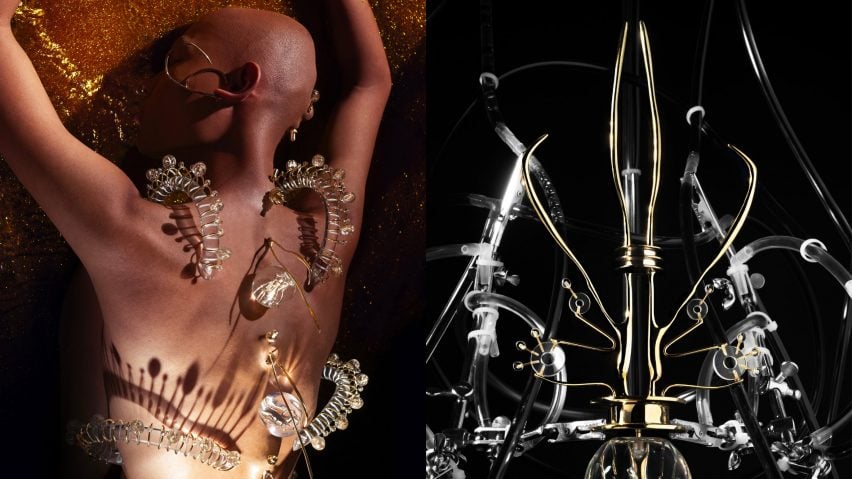
Loan Favan
Loan Favan is a jewellery designer from New Caledonia who previously studied at Design Academy Eindhoven. Her practice pays homage to ancestral Pacific traditions.
Eindhoven- and Seoul-based designer Dae Uk Kim nominated Favan for her ability to tell “strong stories about the human body and identity through jewellery and visual images”.
Among her work is Tanem Fuija, a futuristic jewellery collection of “ritualistic ornaments and speculative scarifications”. The project references a local rite of passage in the South Pacific nation of Vanuatu, where men receive crocodile scale-style markings that are said to grant them immortal powers, explained the designer.
“My work is what I like to call an archaeology of the future,” said Favan. “I explore possible identities for our traditions, mixing mythology, body modification and jewellery.”
Find out more about Loan Favan ›
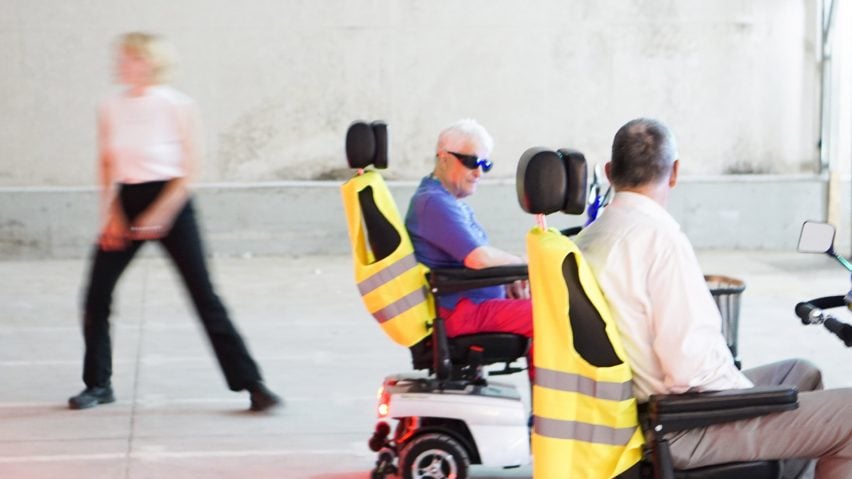
Femke Hoppenbrouwer
Femke Hoppenbrouwer is a Dutch social designer emphasising the importance of questioning “daily patterns we see around us”.
For her ongoing project, The Mobility Scooter Dance Collective (or “Het Scootmobiel Dans Collectief”), Hoppenbrouwer leads a dance troupe of mobility scooter users in locations across the Netherlands.
Together with the members of the collective, Hoppenbrouwer aims to reframe perceptions linked to the vehicles “rooted in ageism and ableism deterring those who need them,” explained the designer.
“The Mobility Scooter Dance Collective puts a smile on your face, and then makes you aware of your own biases towards this group,” said social designer Manon Van Hoeckel, who picked Hoppenbrouwer. “The collective empowers them to be seen and heard.”
Find out more about Femke Hoppenbrouwer ›
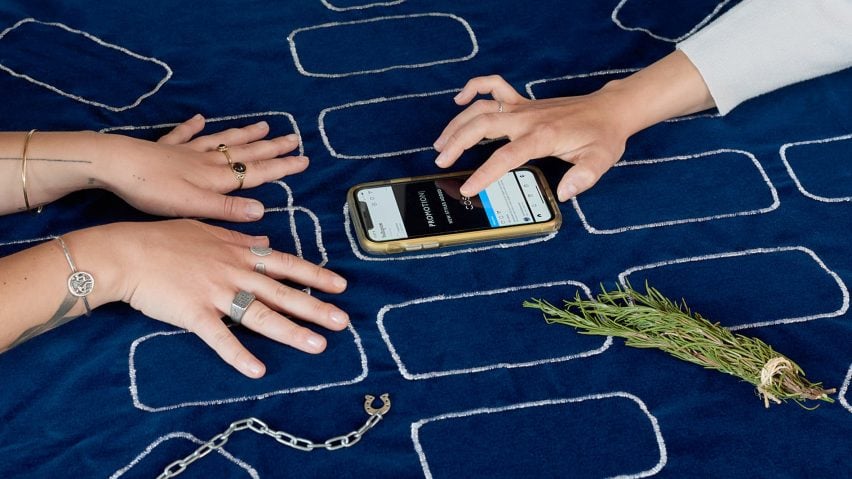
Ginevra Petrozzi
Designer Audrey Large nominated interdisciplinary designer Ginevra Petrozzi, who previously studied at Design Academy Eindhoven.
Petrozzi designs systems and objects that confront surveillance capitalism and big data. Her practice involves playfully reinterpreting traditional methods of “witchcraft”.
For example, with her project Digital Esoterism, the designer performs Tarot-style readings using people’s smartphones instead of traditional playing cards. Prompted by advertisements based on users’ Google search history and suggested Instagram posts, Petrozzi questions what these modern signs say about us and our futures.
“Weaving magical thinking with the politics of bodies, objects, and technologies, Ginevra offers a unique and powerful practice. Complex yet direct devices resonate far beyond the edges of design,” said Large.
Find out more about Ginevra Petrozzi ›
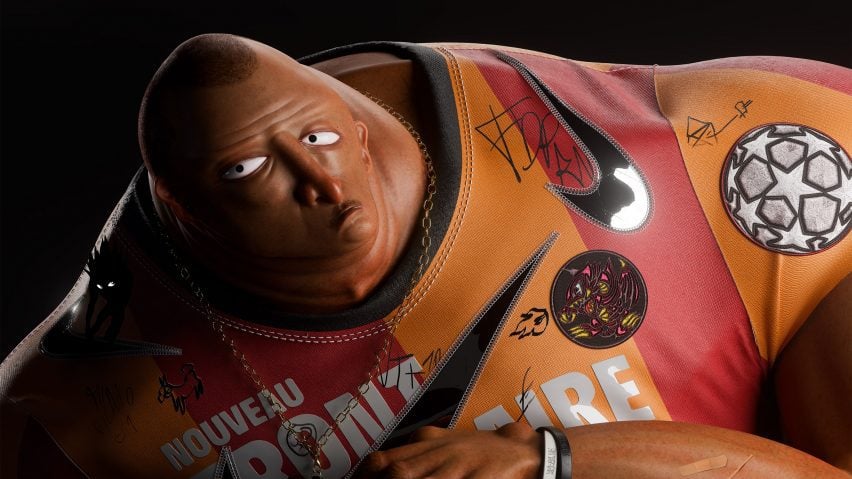
Diego Grandry
Chosen by visual artist Marius Jopen, Diego Grandry is a multidisciplinary visual artist based in the Hague.
Grandry creates illustration, film and sculpture using various 3D software, often reappropriating imagery from popular culture or history.
Among the artist’s projects is Frères et Sœurs (or “Brothers and Sisters”) – a selection of artwork referencing the forming of France’s left-wing New Popular Front in June 2024.
“I like how Diego Grandry – much like other surreal archaeologists – presents us with horrifying, twisted and absurd artefacts from the underworld,” said Jopen.
Find out more about Diego Grandry ›
The images are courtesy of the Dutch Design Awards.
Dutch Design Week 2024 takes place in Eindhoven from 19 to 27 October. See Dezeen Events Guide for an up-to-date list of architecture and design events taking place around the world.

